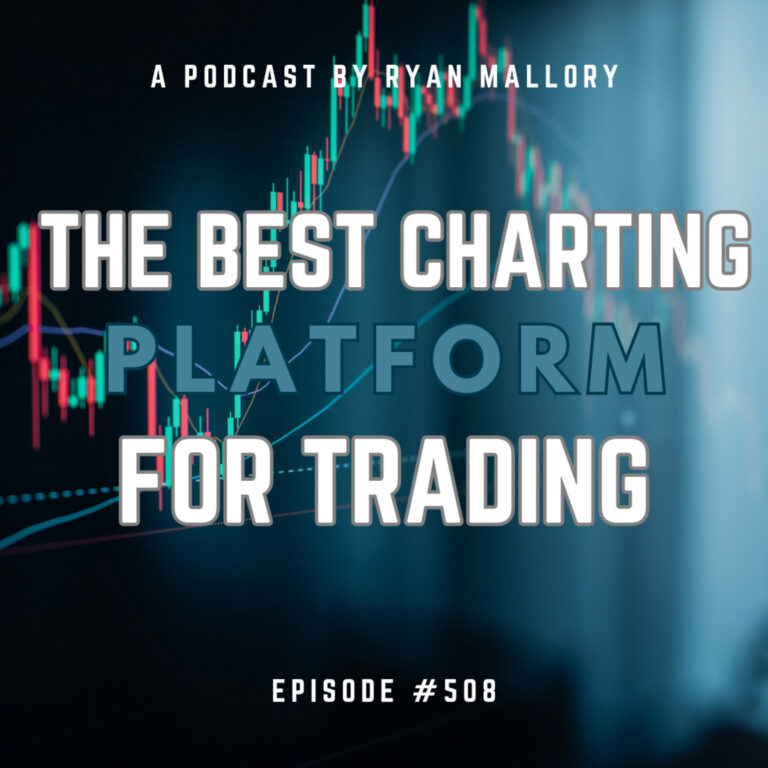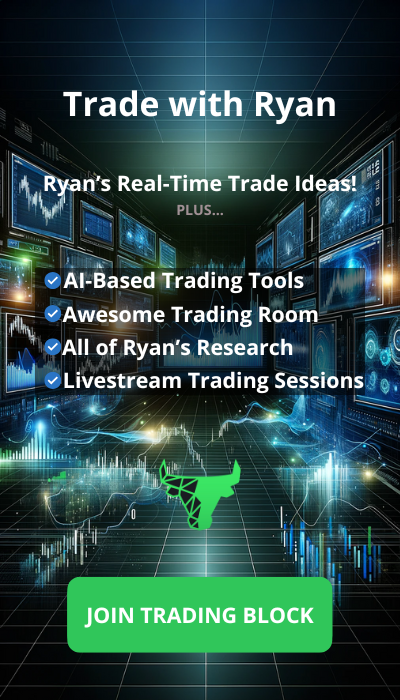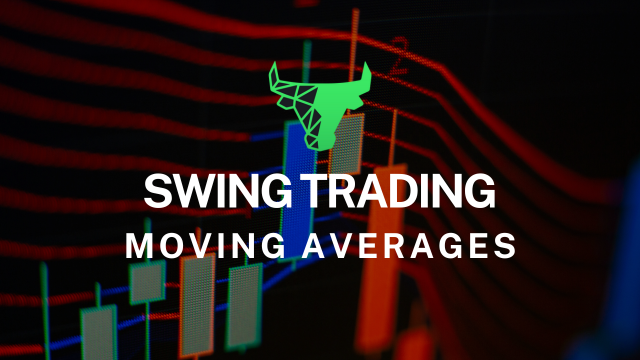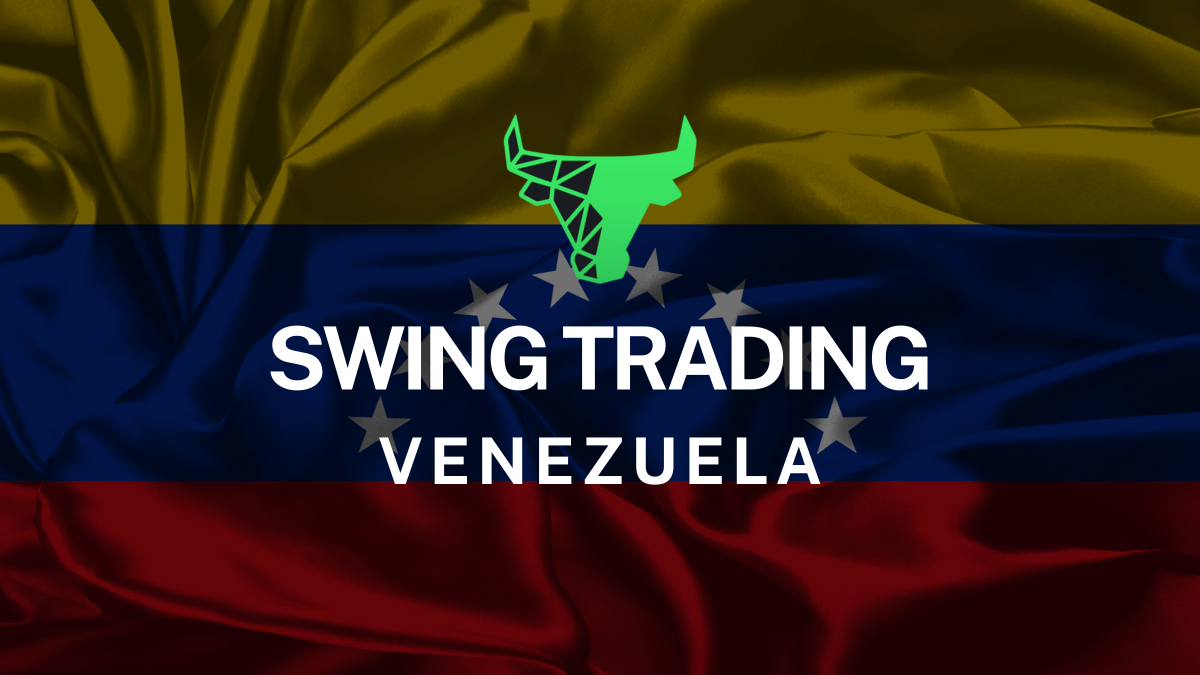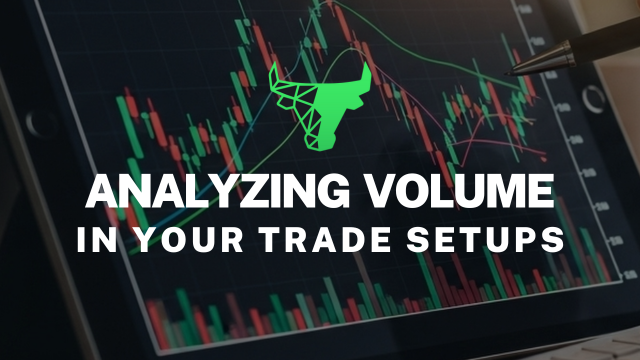Episode Overview
What should a trader study to become better, and can one expect instant success and to be considered a great swing trader right away? In this podcast episode, Ryan explores these questions, and the field of study that is likely to be the most beneficial to a swing trader’s long-term success.
Available on: Apple Podcasts | Spotify | Amazon | YouTube
Episode Highlights & Timestamps
- [0:07] Introduction
Ryan introduces the topic of becoming a swing trader, setting realistic expectations about the learning timeline. - [1:34] Listener Question (Atticus)
Atticus, a longtime nurse, asks if a finance-related degree gives an advantage in becoming a successful trader. - [2:44] Ryan’s College Background
Ryan shares his path through political science, his law school aspirations, and his eventual career shift into trading. - [6:28] Do Degrees Help With Trading?
Ryan explains why business, finance, and even political science degrees often don’t contribute much to trading success, while economics and math degrees might offer more value. - [12:32] The Long Journey to Trading Mastery
Ryan emphasizes that becoming a good trader, like mastering any profession, takes years, consistent effort, and emotional discipline.
Key Takeaways from This Episode:
- Formal Degrees Are Not Required: A finance or business degree does not guarantee trading success.
- Mathematics Offers the Greatest Edge: If pursuing higher education, a math degree can significantly sharpen trading abilities.
- Emotional Discipline Matters Most: Managing emotions during trades is more critical than academic knowledge.
- Trade Schools Offer Flexible Career Paths: Careers like plumbing or electrician work allow freedom to pursue swing trading part-time.
- Expect a Multi-Year Learning Curve: Like nursing or any skilled profession, trading mastery takes time and continuous improvement.
Resources & Links Mentioned:
- Swing Trading the Stock Market – Daily market analysis, trade setups, and insights by Ryan Mallory.
- Join the SharePlanner Trading Block – Get real-time trade alerts and community support.

Take the Next Step:
✅ Stay Connected: Subscribe to Ryan’s newsletter to get free access to Ryan’s Swing Trading Resource Library, along with receiving actionable swing trading strategies and risk management tips delivered straight to your inbox.
📈 Level Up Your Trading: Ready for structured training? Enroll in Ryan’s Swing Trading Mastery Course, The Self-Made Trader, and get the complete trading course, from the foundational elements of trading to advanced setups and profitable strategies.
📲 Join the Trading Community: Sign up for SharePlanner’s Trading Block to become part of Ryan’s swing-trading community, which includes all of Ryan’s real-time swing trades and live market analysis.
Full Episode Transcript
Click here to read the full transcript
0:07
Hey, I’m Ryan Mallory and this is my Swing Trading the Stock Market podcast. I’m here to teach you how to trade in a complex, ever changing world of finance.
0:16
Learn what it means to trade profitably and consistently, managing risk, avoiding the pitfalls of trading, and most importantly, to let those winners run wild.
0:25
You can succeed at the stock market, and I’m ready to show you how. Hey everybody, this is Ryan Mallory with shareplanner.com’s Swing Trading the Stock Market.
0:36
In today’s episode, we’re going to talk about becoming a swing trader, the timeline that you should expect for becoming a good swing trader, and what should you really study to become a good swing trader.
0:48
So this e-mail comes from a a repeat emailer to the show.
0:54
Last time he went by Atticus. This time he will remain as Atticus and Atticus writes.
1:01
I was listening to your latest podcast about the Dow Jones and it made me think about a question for your podcast.
1:07
You mentioned that some financial advisors really don’t know more than a Joe Schmo trader. I’m a nurse.
1:14
I’ve been a nurse for 10 years and I currently work in the emergency room. I have a master’s degree in nursing Leadership and management.
1:22
When it comes to trading, I’d like to make it a part time career because I love how different from nursing it is and I love learning about charts to market etcetera and honestly I could use the supplemental income.
1:32
My question comes from this.
1:34
I am a Joe Schmo trader, an amateur. It took me 10 years to scratch the surface of being a good nurse and I can only assume trading will be the same way based on what you mentioned about financial advisors. Do you think that a degree in finance, business or economics gives someone a better chance of becoming a successful trader over a guy like me, your friend and listener, Atticus?
1:58
Well, first of all, thank you, Atticus.
2:08
But second, I’m not quite so sure that next time I’m in the hospital I’m gonna be like, hey, you’ve been doing this for 10 years because you’re probably just scratching the surface of becoming a decent nurse now.
2:12
But no, I get what Atticus is saying.
2:22
It’s like anything that you do you come out of college and I think in college you’re you’re equipped to believe that you’re just gonna be great and at what you do right out of the gate.
2:30
You’re gonna become a manager right out of the gate and then all of a sudden you find yourself answering phone calls for a for a tech company or something that that you thought you were gonna be running the show for.
2:38
So I do think coming out of college there can be some misplaced expectations and then reality sets in and then you’re you’re really learning from scratch again once you get into the field.
2:44
So for me, I went to college.
2:49
I went to college for political science. I thought I was gonna go to law school.
2:55
It was a pretty cool experience. I used to give tours of the Capitol and and then I did the LSAT test.
3:01
Can’t remember what the exact score that I got. But it wasn’t good enough to get into a lot of your colleges.
3:05
I remember applying to Tennessee, Alabama, trying to think what other ones I think I might have tried to apply to one of the Ivy League schools.
3:13
I applied to Florida, applied to FSU and Stetson. I think it was only FSU and Stetson that I got accepted into.
3:20
The others, they rejected me outright. It wasn’t any like I’ll put you on our waiting list.
3:24
None of that. So I didn’t get into some of the law schools that I was hoping to get into.
3:30
And then I was working at a company as an intern here locally and they offered me a full time job and I just scrapped the aspirations for law school and just took a desk job which I ended up despising for the about the next seven years before I would quit my job and become a full time trader.
3:47
So the political science really helped me much with trading. I would say in some ways it helped me, political science help me understand the legislative process.
4:05
So when you start to hear news coming out about oh, this bill here, they’re gonna try to legalize cannabis or they’re going to do something with climate change or oil. You kind of understand the legislative process enough to understand the timelines that are associated with that, the likelihood that it passes.
4:13
So from that standpoint, understanding the bureaucracy of how our government works, understanding the Supreme Court, the legislative branch, the executive branch, how all that works together, the political process that did help do.
4:32
I think it’s the best degree for helping me with trade note. I think you can buy pretty much, you know, four or five books and and come away with the same kind of understanding that I came away with four years studying political science.
4:39
That’s just the nature of the beast, especially with the Internet now.
4:47
So, so much of what is being taught in the universities now, it’s not necessary to go like $200,000 in debt with student loans or even if you have parents that are going to pay it for you, man, make it count. 4 years is a long time.
4:59
You don’t want to come away with a degree that that sucks and there’s a lot of degrees that are just not good.
5:07
So I also afterwards, when I was working for the man, I got an MBA and they paid for that.
5:15
That was part of like a company perk. So I I got that, got that down at Nova Southeastern.
5:20
I’ll be honest, the NBA does nothing for me. In fact, most of the time I don’t even remember that I even had it.
5:25
I I think it took me like a year and a half to get it. Is it a Ivy League school?
5:29
No. But I mean, did I necessarily, like, learn any less than what I would learn at a major?
5:34
You know, well renowned university? Not really.
5:37
I don’t think I would be feeling any differently about my MBA right now had I gone to Harvard or the degree that I got to move to Southeastern.
5:43
I just MBAs can be decent when you’re trying to advance through a company, be able to say, hey, yeah, I got AMBA.
5:47
At the end of the day, they’re probably not even gonna look at where you got the MBA from.
5:52
They’re probably just gonna acknowledge the fact, OK, he’s got an MBA.
5:59
That’s probably it. I mean, when I got my MBAI was still in that college mode.
6:03
I was like, oh, they’re gonna really like me now. I got AMBA and the boss and I was like, congratulations Bud and I I was like waiting for like the next thing to come.
6:10
He didn’t. He just stood there and then somebody else came up to him and never said anything else to me about it ever again.
6:17
So yeah, I have a negative view on most of your political degrees. So does political science help A little bit.
6:23
Does does a business degree undergrad or an MBA help? No, business degrees don’t do nothing for you.
6:28
They, I don’t even think they really teach them much about business to be honest.
6:33
Economics degree. I did a minor in economics, did that help me?
6:40
That probably helped me out more than my political science degree and my minor in economics.
6:47
It was pretty extensive. The coursework, it was a lot of work.
6:50
From the macro to the micro side and everything in between. I learned a ton.
6:59
There was even some classes on the stock market that that I found pretty interesting and helpful as well, especially when they got into the bonds.
7:06
But overall I think the economics class is decent. I think the biggest take away from there was just understanding more about supply and demand and and how that worked on a chart.
7:14
You increase demand, you can raise the prices on supply assuming that supply stays stagnant.
7:22
If demand remains the same but the supply goes down, you can increase prices and vice versa.
7:30
And it also goes a long ways in understanding, you know, buyers and sellers, you know, buyers be in the demand, sellers be in the supply and how those two things interact.
7:37
So economics does help you. It doesn’t help you directly, but I think it helps your mind to kind of gain a concept for the price action that ensues from a supplier and demand when it comes to buyers and sellers.
7:44
So some benefit with economics.
7:51
So then the other one that you get, everybody that wants to get into the stock market decides to go into finance, even if there’s like a stock specific subset that you can focus on in for your finance degree.
8:01
Would I go into finance?
8:03
No, and I’m not. I’m not crapping on people who got a finance degree.
8:07
I have family members that have a finance degree.
8:14
I don’t think it helps at all. And the reason why finance or a lot of degrees don’t really play into it at all is because you’re such a psychological aspect of trading to where somebody that has control of their emotions when it comes to trading is far more valuable than somebody that has aph degree in astrophysics or rocket science or finance or an MBA or has an MBA.
8:33
If you’re wondering though, maybe what would be the best degree that you could get that might help you the most when it comes to trading, I would probably look at something like in the computer science field, engineering, or maybe even more so mathematics, because that’s probably one of the areas that I I mean, I can do math, I can do a lot of, you know, your algebra and stuff like that.
9:08
That’s 95% of the math that I do as a trader.
9:16
But having a degree in mathematics that can play a huge role, Having a computer science degree or having a strong understanding of computer coding can go a long ways ’cause that can help you create your own algorithms, it can help you develop all sorts of stuff that can help you in in the way that computer coding or helping develop strategies that hedge funds might use and so forth.
9:25
So I would probably say mathematics would be my number one suggestion for somebody that’s interested in the stock market.
9:45
Be really, really good at math because that can open up more doors for you in the stock market.
9:52
So again, going back to Atticus, he’s a nurse for the past 10 years working in the emergency room. Will the finance guy or the economics guy or even the guy that has a PhD in mathematics necessarily have a huge advantage over him?
10:03
No, he will have an advantage over them if he has a better control of his emotions.
10:08
Because so much of your trading success comes down to how well your manage your emotions when you start to lose.
10:13
Are you staying disciplined and getting out of the trade when it stops you out? Or are you doubling, tripling down, hoping that you won’t have to take a loser, only to see your positions become a much bigger loser than it was before?
10:21
That’s the stuff that mathematics and economics don’t teach you.
10:28
If I had to do it over again, would I do political science and economics? No, I if I was definitely going to go to college again, I would do mathematics.
10:36
I would just force myself to do it. I don’t even think I’d really enjoy it that much.
10:41
I mean, I definitely enjoyed college when I was there. I made lots of good friends, but I don’t think I would have enjoyed it as much if I was doing mathematics, ’cause there have been a lot more studying than what you have to do.
10:47
That’s a political science major.
10:52
But you also have trade schools now and and this, this is a big thing too. You have plumbing, you have welding, you have, there’s so many different ones, but some of the ones that come off the top of my head, plumbing, welding, you know, an AC serviceman, that’s really important in Florida, being a mechanic, being an electrician, those things are great jobs to have.
11:12
That allows you to be also be a swing trader because with a lot of those jobs, especially when you start to own your own business and you can create your own calendar, you can go ahead and determine, OK, I’m not going to take calls, you know somebody’s house before 10:00 or before 11:00 and I’ll do some night calls.
11:22
And there’s not a lot of people that are willing to do night calls. So maybe you’re doing like something at 7 or 738 o’clock after people get home from work and they’d rather be there when the electrician or plumber makes a visit and they don’t have to take time off from work.
11:30
And the reason why I bring up trade schools is because I think that when you’re trying to become a full time trader or or you decide to go that route, you don’t have to be exclusively a full time trader.
11:41
And if you can, it’s even better if you have a side gig that you can make some money off of so it doesn’t just have to be that.
11:50
Shoot, you could run a food truck and have have a Internet connection, put a star link on the top of the truck or, you know, have a hotspot that you can trade off of.
12:12
Sure, you can do that.
12:18
Might not be doing a lot with the food truck during, you know, lunch or dinner hours, but everything in between.
12:24
There’s probably a lot of downtime where you can do some work.
12:32
So, like nursing, trading does take years to get really good at.
12:39
I know that there’s a lot of people that try to sell you the dream that you’re gonna become an instant success at swing trading, and that’s simply not the case.
12:47
With it, you were going to get all of my stock market research each and every day.
12:55
Plus I’m gonna review the watch list every day. On top of that, you’re going to get at the beginning of each week when my master bullish and bearish watch list.
13:02
And then throughout the week you’re going to get updates on the stock market, on the big tech stocks, the really, really good value.
13:07
And then I’ll also put some trade ideas out there throughout the day.
13:12
So it’s a really good value.
13:16
swingtradingthestockmarket.com. It’ll take you to shareplanner.com but and and give you all that information.
13:22
So as it pertains to becoming a better trader, yes, it’s gonna take many years, but there’s progress along the way.
13:31
I would equate it to a golfer.
13:36
You’re gonna Shank lot of golf balls that you hit.
13:41
Can I hit the golf ball? Yes.
13:42
That’s about the the extent of my golfing abilities.
13:47
Can I putt from three feet away?
13:49
I don’t know if I’m feeling cute, Maybe 6-6 feet away.
13:54
But overall, am I gonna hit for part? No.
13:58
But if I was to do it for the next 10 years, I would get progressively better.
14:03
I would get much, much better.
14:11
So you’re looking for constant improvement.
14:16
Doesn’t mean that you can’t have successful years at swing trade, but what you want is to be successful year in and year out.
14:22
And like golf, you can be good, but you can always get better.
14:31
Or if you’re, you know, shooting three over on a regular basis, maybe you’re going to aim for only one over to get better to where you’re doing that consistently.
14:39
So yes, you can become a better swing trader.
14:46
That leads you to becoming a good swing trader, but you can always still get even better and maybe become a great swing trader one day.
14:52
One of the biggest parts of becoming a good trader is getting the silly mistakes out of the way.
14:59
You know people saw this picture that the guy that goes by Roaring Kitty, Keith Gill, he puts there out there on Twitter of a dude leaning forward in his chair and everybody starts buying GameStop and AMC.
15:11
They were buying these things like hundred 150% up, thinking, oh this is it, it’s back, I’m gonna make money.
15:17
Day before they had no intentions of even buying it.
15:20
Didn’t even care about the stock market at that time.
15:27
All of a sudden they’re gonna follow him and they’re they’re going to try to get rich.
15:33
Those are stupid, silly mistakes that you make in the market.
15:41
You’re looking at consistent gains on a regular basis.
15:56
You look at Dave Portnoy, I think he’s a great personality.
16:00
He loves pizza reviews.
16:03
No.
16:07
And knowing he’s got his Davey Day Trader Global or whatever he calls calls his business and he’s got the green hammer, he’s throwing this green hammer.
16:17
Is that serious? No.
16:21
I mean, it’s really for more for show, OK?
16:23
He can afford to lose, you know, tons of money.
16:29
He’s so he’s looking at it more from a gambling point of view, Not really.
16:36
He’s he’s just looking at it for what it is in the moment.
16:40
It’s probably gonna get a lot of attention from people.
16:46
So in all the degrees that most people would choose to pursue in hopes of becoming a swing trader or just a trader of any kind, they usually don’t help you.
16:59
If you’re gonna do something, go after mathematics.
17:03
It’s gonna give you a lot of foundational understandings of concepts that you’ll use and trading and and more advanced concepts as well.
17:13
Just like I did last podcast episode, I told you about a new feature where I’m rolling out old fashioned reviews and so I have a recipe I I talked about in the last last podcast episode at Towards the End.
17:23
So if you wanna get that recipe, go back and watch that that or listen to the podcast.
17:31
This one I’m using today is Wilderness Trail.
17:37
So that makes it 100 proof small batch.
17:42
If I was to do a review on it, I would give it probably like a 76.
17:47
It wasn’t like knock your socks off or anything, but I had high hopes for it.
17:51
Now.
17:59
My wife even wants some of that tonight.
18:02
She’s like, I need you to make me some of that.
18:08
It’s made from a traditional mash bill of corn, wheat and malted barley copper column distilled from a fermented batch using our sweet mash process.
18:18
Now, unlike the French oak Maker’s Mark 46th one that I had last time, which was really good, this one does not satisfy me at all.
18:27
It really does.
18:30
It’s got some like like a weird sweetness to it.
18:35
But as being used in the old fashioned, no it’s bad.
18:41
I would probably give this like a a 6.6.
18:50
Not because I think it’s only a 7.5.
18:55
So I’m gonna put it below that 7.5 level.
19:04
So Wilderness Trail, I give 6.6.
19:23
That really does mean a lot to me.
19:27
That’s one of the ways you can say thank you.
19:32
Finally, keep sending me your questions.
19:34
I want to hear from you.
19:38
I want to hear your stories, I want to hear your questions that you have.
19:45
I get them and I’m the only person that reads these emails.
19:50
Thanks for listening to my podcast Swing Trading the Stock Market.
19:58
With your membership you will get a seven day trial and access to my trading room including alerts via text, e-mail and WhatsApp.
20:06
So go ahead, sign up by going to shareplanner.com/trading Block.
20:12
That’s www.shareplanner.com/trading-block.
20:21
If you have any questions, please feel free to e-mail me at ryan@shareplanner.com.
20:29
All the best to you and I look forward to trading with you soon.
Enjoy this episode? Please leave a 5-star review and share your feedback! It helps others find the podcast and enables Ryan to produce more content that benefits the trading community.
Have a question or story to share? Email Ryan and your experience could be featured in an upcoming episode!
Become part of the Trading Block and get my trades, and learn how I manage them for consistent profits. With your subscription you will get my real-time trade setups via Discord and email, as well as become part of an incredibly helpful and knowledgeable community of traders to grow and learn with. If you’re not sure it is for you, don’t worry, because you get a Free 7-Day Trial. So Sign Up Today!

Welcome to Swing Trading the Stock Market Podcast!
I want you to become a better trader, and you know what? You absolutely can!
Commit these three rules to memory and to your trading:
#1: Manage the RISK ALWAYS!
#2: Keep the Losses Small
#3: Do #1 & #2 and the profits will take care of themselves.
That’s right, successful swing-trading is about managing the risk, and with Swing Trading the Stock Market podcast, I encourage you to email me (ryan@shareplanner.com) your questions, and there’s a good chance I’ll make a future podcast out of your stock market related question.
Which trading platform in 2026 should you be using? In this podcast episode Ryan talks about all the major platforms out there from TC2000 to TradingView, to TrendSpider and the Bloomberg Terminal. What are the perks and benefits to each one, and Ryan will also go over his lower-tier platforms that you might want to consider as well.
Be sure to check out my Swing-Trading offering through SharePlanner that goes hand-in-hand with my podcast, offering all of the research, charts and technical analysis on the stock market and individual stocks, not to mention my personal watch-lists, reviews and regular updates on the most popular stocks, including the all-important big tech stocks. Check it out now at: https://www.shareplanner.com/premium-plans
📈 START SWING-TRADING WITH ME! 📈
Click here to subscribe: https://shareplanner.com/tradingblock
— — — — — — — — —
💻 STOCK MARKET TRAINING COURSES 💻
Click here for all of my training courses: https://www.shareplanner.com/trading-academy
– The A-Z of the Self-Made Trader –https://www.shareplanner.com/the-a-z-of-the-self-made-trader
– The Winning Watch-List — https://www.shareplanner.com/winning-watchlist
– Patterns to Profits — https://www.shareplanner.com/patterns-to-profits
– Get 1-on-1 Coaching — https://www.shareplanner.com/coaching
— — — — — — — — —
❤️ SUBSCRIBE TO MY YOUTUBE CHANNEL 📺
Click here to subscribe: https://www.youtube.com/shareplanner?sub_confirmation=1
🎧 LISTEN TO MY PODCAST 🎵
Click here to listen to my podcast: https://open.spotify.com/show/5Nn7MhTB9HJSyQ0C6bMKXI
— — — — — — — — —
💰 FREE RESOURCES 💰
— — — — — — — — —
🛠 TOOLS OF THE TRADE 🛠
Software I use (TC2000): https://bit.ly/2HBdnBm
— — — — — — — — —
📱 FOLLOW SHAREPLANNER ON SOCIAL MEDIA 📱
*Disclaimer: Ryan Mallory is not a financial adviser and this podcast is for entertainment purposes only. Consult your financial adviser before making any decisions.
